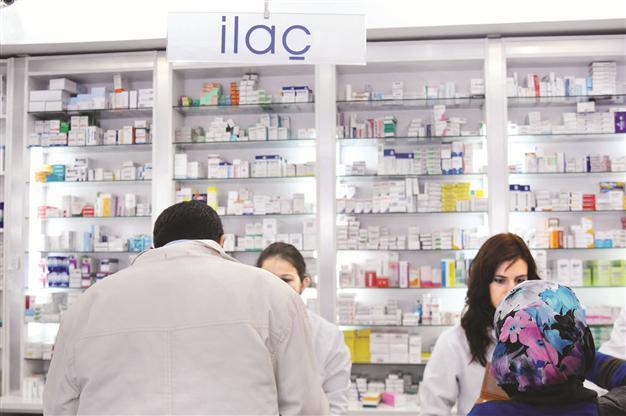Turkey consumes more medicine for less money
ANTALYA - Anatolia News Agency

The Turkish government has applied considerable discounts in drug prices since 2009 to realize its budget targets, which caused decreases in profitability. DAILY NEWS photo, Hasan ALTINIŞIK
The Turkish prescribed medicine market shrunk by 5.9 percent to 12.9 billion Turkish Liras although the market approached 1.56 billion packages, a 2.8 percent increase in 2012. The profitability of the pharmaceutical industry continued to decrease following the 2009 regulations that pushed the industry to decrease medicine prices, sector professionals said.Medicine consumption reached 20.62 packages per capita in Turkey last year, a 2.8 percent increase. While a consumer paid $106 on average, she or he paid $121 in 2011, $133 in 2010, $132 in 2009 and $136 in 2008.
This picture looks like good for all consumers at first glance, but it may not be good as it appears.
“The Turkish government started to apply considerable discounts in medicine prices in 2009 to realize its budget targets. This has however caused considerable decreases in profitability, even rises in losses in the industry, resulting in some postponement in planned investments,” said the Medicine Industry Employers’ secretary-general, Turgut Tokgöz. He added the Turkey needed to develop a sustainable pricing policy for the industry immediately, otherwise Turkish drug companies could not focus on research and development activities, which is a must to compete with multinationals.
According to the a recent report published by the Business Monitor International (BMI) on Turkey’s health and pharmaceutical industry, the market contracted significantly in 2012. “We continue to hold a positive long-term view on the market’s potential, owing to Turkey’s rapid economic growth and rising per capita spending. However, state intervention in the pharmaceutical sector continues to stifle the industry’s potential and restrict foreign drugmakers’ access to the country’s lucrative market,” the report said.
Import slows down
The price cuts resulted in deferred investments, employee layoffs and the pruning of uneconomic medicines from their product lines, sector representatives said.
Following the price cuts on drugs, most of those drugs had started not to be imported to Turkey. Then, the Turkish government reduced the discounts on more than 800 drugs for life-threatening diseases, such as cancer, and chronic diseases, such as diabetes, at the beginning of 2013.
The most prescribed medicine in Turkey is believed to be antibiotics at 11.3 percent of prescriptions, followed by cardiovascular, anti-rheumatic, neurotic and oncology medicines, according to Turkish Ministry of Health figures.
Meanwhile, Turkey imported $4 billion of medicine in 2012, a 14.9 percent decrease compared to 2011, and exported $662 million of medication, a 16.8 percent increase.
















